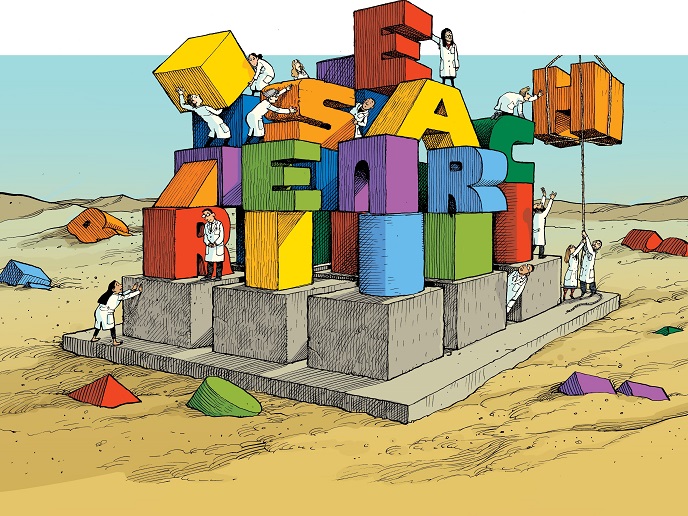Promoting responsible research practices at the institution level
Research integrity is at the heart of reliable and trustworthy science. The good news is that serious violations of good research practices, such as falsification, fabrication and plagiarism, are relatively rare. Some studies have estimated that 1–2 % of scientists are engaged in such practices. Unfortunately, when they do happen, they tend to get considerable attention by the media. More concerning is the frequency of questionable research practices, including bad research design, methodology and analyses. And there’s also the issue of waste, with one influential paper estimating that 85 % of all clinical research funding is wasted. “Intended and unintended breaches of integrity and good research practice reduce the quality of the research produced and the trustworthiness of the results,” explains Mads P. Sørensen, a professor at Aarhus University in Denmark. “If scientific institutions and practices are perceived to be faltering, public trust in science may be jeopardised.” According to Sørensen, research performing organisations (RPOs) and research funding organisations (RFOs) play a key role in promoting responsible research practices. “These organisations play a decisive role in empowering and enabling researchers to act responsibly in their research practices and in detecting and handling breaches of the principles of research integrity,” he says. But cultivating a responsible research culture and responsible research practices requires that RPOs and RFOs have appropriate policies, procedures and structures in place – which is where the EU-funded SOPs4RI project comes in. “SOPs4RI created a collection of easy-to-use standard operating procedures and guidelines that RPOs and RFOs can use to develop their own research integrity promotion plans,” adds Sørensen, who served as the project coordinator.
Addressing research integrity
These procedures and guidelines are provided via the SOPs4RI Toolbox, an open, free and practice-oriented platform designed to support responsible research. “The idea behind the Toolbox is that institutions can use it to create their own research integrity policies and plans,” explains Sørensen. To start, the project defined the research integrity topics that should be addressed within the research integrity promotion plans. To ensure the Toolbox met actual RPO and RFO needs, it is built on a comprehensive research and development process – a process that included scoping reviews, a Delphi survey, cross-national focus group interviews, co-creation workshops, a multinational survey and pilot testing at 15 institutions. The outcome of this work is a comprehensive Toolbox that today contains 131 guidelines addressing all research integrity topics and subtopics, including existing high-quality guidelines as well as new guidelines developed within the SOPs4RI project. The SOPs4RI Toolbox is already being used by several European and international institutions. It is also referenced in the EU’s Horizon Europe framework programme, as well as in the new version of the ALLEA European Code of Conduct for Research Integrity. In addition to the Toolbox, the project published a number of high-quality academic papers, including in ‘Nature’.
Promotion plans
Sørensen says he is confident that more institutions will leverage the Toolbox, using its guidelines as inspiration for creating their own research integrity promotion plans. “If we really want to do something about research misconduct, questionable research practices and research waste, we can’t only focus on individual researchers – we have to look at the science system, our research culture and what institutions can do,” he concludes. “Our Toolbox and guidelines cover the institutional level.”
Keywords
SOPs4RI, ALLEA European Code of Conduct for Research Integrity, Research Performing Organisations, Research Funding Organisations, responsible research, science, scientists, research integrity, research misconduct, research waste



